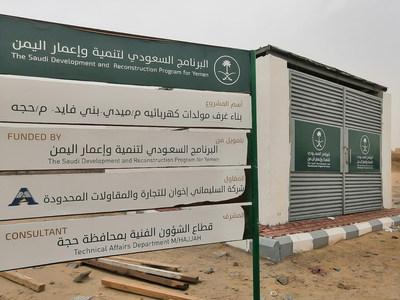UN warns of new Yemen disaster as flood death toll rises to 148


Yemen faces a new catastrophe from torrential rain and flooding that have devastated the country for the past three months, the UN warned on Sunday.
Flash floods have killed at least 148 people, left more than 300,000 homeless and destroyed property, cropsand livestock.
The flooding has left thousands of Yemenis jobless and has hampered efforts to contain the spread of the coronavirus, said UN High Commissioner for Refugees (UNHCR) spokesman Andrej Mahecic.
“UNHCR is deeply concerned that the displaced communities are extremely vulnerable to the COVID-19 pandemic, with many unable to practice social or physical distancing, access clean water for hand-washing or enact other measures to prevent transmission of the virus,” Mahecic said.
The provinces of Marib, Amran, Hajjah, Hodeidah, Lahj, Aden and Abyan are the worst affected, with thousands forced to flee their homes and seek shelter in mosques, health centers and schools.
“Many of the internally displaced people affected by the floods were already living in abject poverty, often in overcrowded, makeshift shelters made from plastic sheeting or mud, which have been washed away,” Mahecic said.
Dams have collapsed and the biggest, at Marib, overflowed, flooding shelters and washing away farms. There are now fears that Marib dam may burst because it has not been properly maintained.
“It is highly vulnerable to bursting. This would destroy the downstream irrigated area, which hosts thousands of displaced people, as well as the lower parts of Marib town,” Mahecic said.
Ahmed Saeed Baamer’s family and three others sought shelter with relatives in the village of Radfan, west of the port city of Mukalla, when a rainstorm and floodwaters made their home uninhabitable. They have now gone back home to await help.
“We had no other option but to return to the house,” Baamer, a nurse, told Arab News. “Our relatives’ houses are overcrowded. The government has not helped us. A government engineer saw the damage in my house and left without saying when they would help. All we want is safer accommodation.”
Salem Al-Khanbashi, Yemen’s deputy prime minister and head of the supreme national emergency committee, told Arab News that the government had allocated 2.5 billon Yemeni riyals ($9.9 million) for reconstruction and relief after floods in March and April. When the rain continued, the cash-strapped government turned to international donors for help.
“We could not allocate more funds as floods and rain became more destructive and caused huge damage across the country. The reconstruction bill is beyond the government’s abilities,” Al-Khanbashi said.

Aden — Yemen Airways has announced new updates to its ticket cancellation (VOID) policy, introducing financial penalties on travel agents in…

Geneva – The United States announced that Yemen will not be among the countries benefiting from a new $2 billion funding pledge for United Na…

Paris — The French humanitarian organization Acted announced that it has delivered cash assistance to nearly 89,000 people affected by displa…